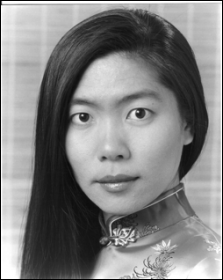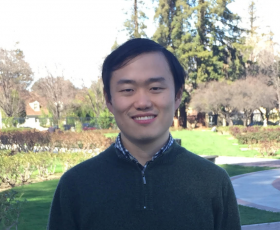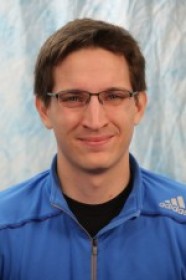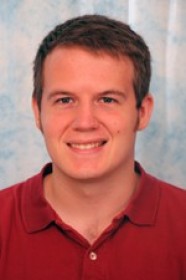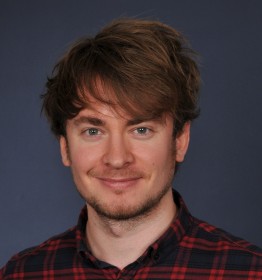Human versus Machine Perception of Visual Regularity or Are you a human or a robot?
Event Location: NSH 1305Bio: Yanxi Liu received her B.S. degree in physics/electrical engineering (Beijing, China), her Ph.D. degree in computer science for group theory applications in robotics (University of Massachusetts, Amherst, US), and her postdoctoral training in the robotics lab of LIFIA/IMAG (Grenoble, France). Before joining the Robotics Institute of Carnegie Mellon Institute in 1996 [...]
Robot Brachiation with Energy Control
Event Location: NSH 1507Bio: Zongyi Yang is a M.S. student in the Robotics Institute advised by David Wettergreen. He received a B.S. in Engineering Science ECE Option from University of Toronto in 2014. His current research focuses on robot brachiation. Abstract: Branching structures are ubiquitous elements in several environments on Earth, from trees found in [...]
Human Manipulation Action Understanding for Cognitive Robots
Event Location: Newell Simon Hall 1507Bio: Dr. Yezhou Yang is a Postdoctoral Research Associate at the Computer Vision Lab and the Automation, Robotics and Cognition (ARC) Lab, with the University of Maryland Institute for Advanced Computer Studies, working with his PhD advisors: Prof. Yiannis Aloimonos and Dr. Cornelia Fermuller. His main interests lie in Cognitive [...]
Semantic Mapping for Robotic Navigation and Exploration
Event Location: GHC 2109Abstract: The last decade has seen remarkable advances in 3D perception for robotics. Advances in range sensing and SLAM now allow robots to easily acquire detailed 3D maps of their environment in real-time. However, adaptive robot behavior requires an understanding the environment that goes beyond pure geometry. A step above purely geometric [...]
Reasoning in Deep Learning
Event Location: Newell Simon Hall 1507Bio: Yuandong Tian is a Research Scientist in Facebook AI Research, working on Deep Learning and Computer Vision. Prior to that, he was a Software Engineer in Google Self-driving Car team in 2013-2014. He received Ph.D in Robotics Institute, Carnegie Mellon University on 2013, Bachelor and Master degree of Computer [...]
Traversability Prediction for Planetary Rovers in Granular Terrain
Event Location: GHC 2109Abstract: Loose, granular terrain can cause rovers to slip and sink, inhibiting mobility and sometimes even permanently entrapping a vehicle. Traversability of granular terrain is difficult to foresee using traditional, non-contact sensing methods, such as cameras and LIDAR. This inability to detect loose terrain hazards has caused significant delays for rovers on [...]
Tracking and Calibrating Articulated Robots using SLAM Techniques
Event Location: NSH 1305Abstract: Robots still struggle with everyday manipulation tasks. An overriding problem with robotic manipulation is uncertainty in the robot's state and calibration parameters. Small amounts of uncertainty can lead to complete task failure. This thesis explores ways of tracking and calibrating noisy robot arms using computer vision, with an aim toward making [...]
Rovers for Exploring Lunar Pits and Caves
Event Location: GHC 2109Bio: John Walker completed his aerospace PhD at Tohoku University in 2016. His Mechanical Engineering degree was earned at the University of Alberta in 2005. In 2010 he attended the International Space University in Strasbourg, France. This was followed by an internship at the Space Robotics Lab at Tohoku University in Japan [...]
Factoring Scenes into 3D Structure and Style
Event Location: GHC 4405Abstract: Given a single image of a scene, humans have few issues answering questions about its 3D structure like “is this facing upwards?” even though mathematically speaking this should be impossible. We have similarly have few issues accounting for this 3D structure in answering viewpoint independent questions like ``is this the same [...]
Deep Learning for Robot Manipulation via Simulation
Event Location: Newell Simon Hall 1507Bio: Ed Johns is a Dyson Fellow at Imperial College London, working on computer vision, robotics and machine learning. He received a BA and MEng from Cambridge University, followed by a PhD in visual recognition and localisation from Imperial College London. After post-doctoral work at University College London, he then [...]
